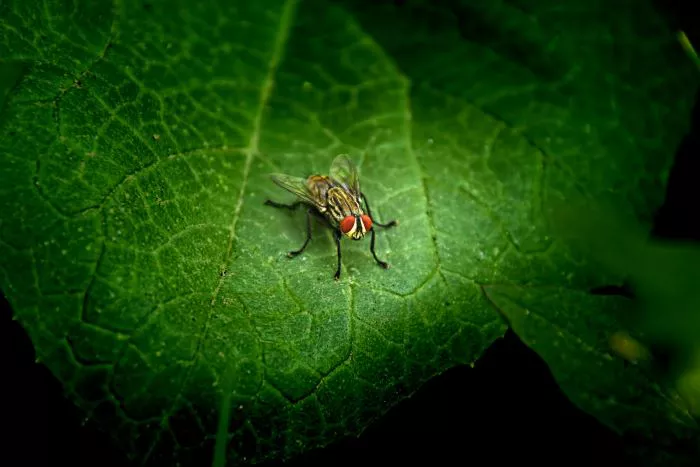Roses are cherished for their beauty and fragrance, but they can be vulnerable to various pests. One of the most problematic pests for rose growers is the whitefly. These tiny, flying insects can cause significant damage to rose plants by feeding on their sap and transmitting diseases. Effective management of whiteflies is essential to maintain the health of your roses. This article will provide a detailed overview of whiteflies, their impact on roses, and practical methods to eliminate them using home remedies and integrated pest management strategies.
Understanding Whiteflies
Whiteflies are small, winged insects that belong to the family Aleyrodidae. They are typically found on the undersides of leaves, where they feed on plant sap. Adult whiteflies are about one-sixteenth of an inch long and have a white, powdery appearance. They reproduce quickly, and a small infestation can escalate rapidly if not addressed.
Whiteflies can weaken rose plants by draining their sap, leading to yellowing leaves, stunted growth, and reduced flowering. Additionally, they excrete a sticky substance known as honeydew, which can attract sooty mold and other pests. This can further compromise the health of your roses.
Identifying Whiteflies
Before taking action, it is important to confirm the presence of whiteflies. Look for the following signs:
- Adult whiteflies can be seen flying around the plant when disturbed.
- Check the undersides of leaves for clusters of small, white insects.
- Yellowing leaves or leaves that appear sticky can indicate whitefly feeding.
- Sooty mold may develop on the leaves due to honeydew excretion.
Once you confirm the presence of whiteflies, you can implement control measures.
Home Remedies for Controlling Whiteflies
Several home remedies can effectively manage whitefly populations on roses. These methods are environmentally friendly and can be used safely in your garden.
Insecticidal Soap
Insecticidal soap is a popular and effective remedy for whiteflies. It works by suffocating the insects and disrupting their cell membranes. To make your own insecticidal soap, mix one to two tablespoons of a mild liquid soap (like Castile soap) with a quart of water. Spray the solution directly onto the whiteflies, ensuring thorough coverage on the undersides of the leaves. Reapply every few days until the infestation is under control.
Neem Oil
Neem oil is a natural pesticide derived from the seeds of the neem tree. It disrupts the life cycle of many pests, including whiteflies. To use neem oil, dilute it according to the instructions on the product label. Spray the mixture on the affected areas, focusing on the undersides of the leaves. Neem oil not only helps control whiteflies but also has antifungal properties that can benefit your roses.
Garlic Spray
Garlic is known for its pest-repelling properties. To create a garlic spray, blend several cloves of garlic with water and let the mixture steep overnight. Strain the liquid and add a few drops of liquid soap. Spray this solution on your rose bushes, particularly on the undersides of the leaves where whiteflies tend to hide. The strong scent of garlic can deter whiteflies and other pests.
Pepper Spray
Hot pepper can also act as a natural deterrent for whiteflies. To make a pepper spray, mix one tablespoon of crushed red pepper or cayenne pepper with a quart of water. Allow the mixture to steep for several hours, then strain it and add a few drops of soap. Spray this solution on your roses to repel whiteflies and other unwanted insects.
Diatomaceous Earth
Diatomaceous earth is a natural powder made from the fossilized remains of tiny aquatic organisms called diatoms. It works by damaging the exoskeletons of insects, leading to dehydration. To use diatomaceous earth, lightly dust it around the base of your rose bushes and on the leaves. Be careful to apply it when the wind is calm, as it can be blown away. Reapply after rain or watering to maintain its effectiveness.
Companion Planting
Companion planting can help deter whiteflies. Certain plants, such as marigolds and basil, can repel whiteflies and attract beneficial insects that prey on them. Consider planting these companion plants near your roses to create a natural barrier against infestations.
Encouraging Beneficial Insects
Beneficial insects, such as ladybugs and lacewings, can help control whitefly populations. These insects feed on whiteflies and their larvae. To attract beneficial insects to your garden, plant flowers like yarrow, dill, and fennel. Creating a welcoming environment for these helpful insects can reduce the need for chemical interventions.
Maintaining Plant Health
Healthy plants are more resistant to pests. Ensure your roses receive adequate sunlight, water, and nutrients. Regularly prune dead or damaged leaves to promote airflow and reduce the likelihood of infestations. Mulching around the base of your plants can help retain moisture and suppress weeds, contributing to healthier roses.
Regular Monitoring
Regular monitoring of your rose bushes is essential for early detection of whiteflies. Inspect the leaves weekly, especially during warm weather when whiteflies are most active. Early intervention can prevent a small problem from becoming a larger infestation.
Chemical Control Options
If home remedies do not effectively control whiteflies, consider using chemical insecticides as a last resort. Look for products specifically labeled for whitefly control and follow the instructions carefully. Always apply insecticides in the early morning or late afternoon to minimize harm to beneficial insects and avoid leaf burn.
Conclusion
Managing whiteflies on roses can be challenging, but with the right strategies, you can protect your plants and maintain their beauty. Home remedies such as insecticidal soap, neem oil, garlic spray, and diatomaceous earth provide effective solutions without the need for harsh chemicals. By understanding the life cycle of whiteflies and implementing preventive measures, you can enjoy healthy, vibrant roses in your garden. Regular monitoring and maintaining plant health will further enhance your success in keeping these pests at bay. With diligence and care, you can ensure your roses thrive despite the challenges posed by whiteflies.


